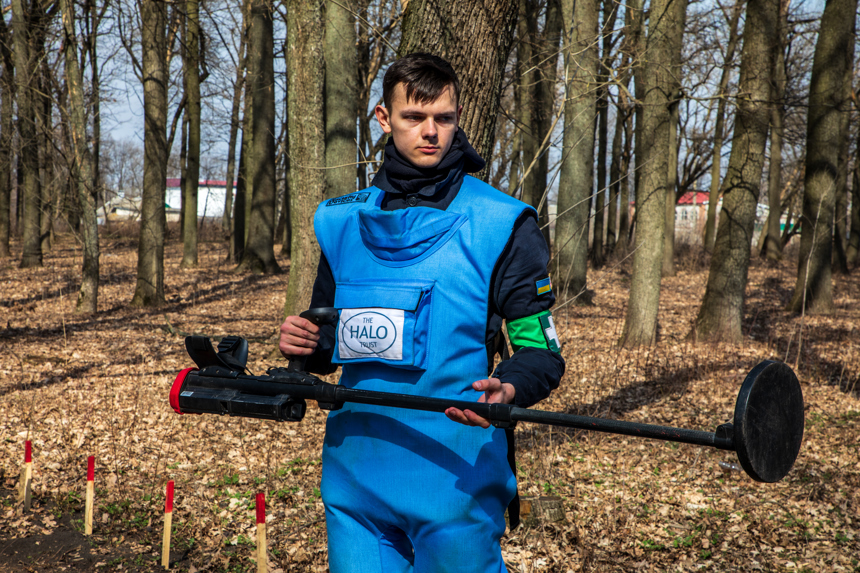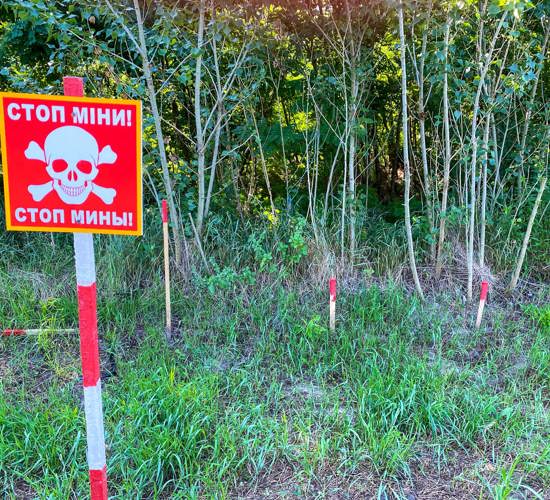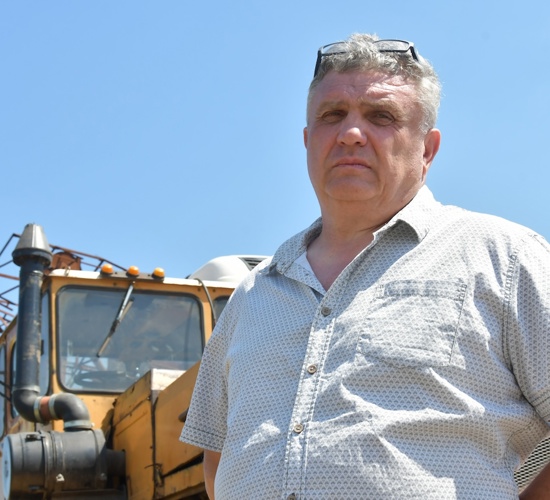“Barley and winter wheat, sunflowers and other cereals grew here. Now all my fields are mined. I can’t work on them today,” says the gray-haired man sadly and waves his hand towards the endless fields of the Mykolaiv oblast.
His name is Serhii Kishkovskyi, he is a local farmer and chairman of the Savannah agricultural community. Behind his back lie vast agricultural fields in the village of Snihurivka, which survived the occupation two years ago.
On March 19, 2022, Russian troops entered the village, positioned themselves throughout its territory and occupied the surrounding fields, which were cultivated as part of Kishkovskyi’s farm. The military comfortably settled there: they placed tanks and armored personnel carriers, dug trenches and set up warehouses with ammunition.
The Russians pointedly told the farmer, “Now your farm belongs to the Ministry of Defense of the Russian Federation, you have nothing to do with it and are denied access.” Very soon after this, Serhii and his family had to flee their village to save their lives.
The farmer managed to return to his native Snihurivka only in the winter of 2022, after it was liberated by Ukrainian forces. And what he found shocked him. Prior to the invasion, Kishkovskyi’s farm was 500 hectares of fruitful, flowering fields.

Deminers in Ukraine are working to clear contaminated land.
“The Russians took everything from the warehouse - 386 tons of sunflowers, 200 tons of winter wheat, 70 tons of barley - everything went into oblivion. All my equipment was destroyed beyond repair. I was left with nothing."
Before the full-scale invasion, Serhii made a serious investment in his small business: he took out a loan and spent $50,000 on the construction of a grain cleaning station. It helped the entire region cultivate the harvests of wheat, sunflowers, barley and corn. The Russians burned the station, leaving the farmer with loans and local farmers without the ability to process their crops.
Without losing optimism to regain what was lost, Serhii tried to come back to work on the fields in April 2023. And then another disappointment awaited him: before leaving in November, the Russians mined all the lands in the vicinity.
“And they are mined to this day, so it’s scary to go out there. At first there were many accidents: other farmers went to work, detonating mines while driving tractors. My fellow farmer, 6 km from here, stayed alive by a miracle,” Kishkovskyi recalls.
The difficult situation with mined lands affected the economy of the entire region and hit the pockets of the residents of Snihurivka. Kishkovskyi’s farm provided employment to several dozen locals, and one hundred more rented the land for their own agricultural needs.

“My tractor drivers are now afraid to enter the fields because they understand the life-threatening danger. I can’t risk human lives. They were all left without work. My company is completely destroyed, and this was my source of income for feeding my family.”
But the farmer refused to give up, making an attempt to cultivate the land at his own risk. He rented equipment and tried to sow 40 hectares with sunflowers. But he quickly realized it was not a good idea, when the disks of his tractor began to turn unexploded mines, shells and anti-tank guided missiles out of the ground. Serhii took photos of these explosive items and sent them to the State Emergency Service of Ukraine, who came to dispose of the ordnance.
A real ray of hope shone for Snihurivka farmers last spring when HALO’s non-technical survey teams started to work in the village. Painstakingly and carefully, they began collecting data on every centimeter of potentially contaminated land, gaining a full understanding of the threats in the area by early 2024. Now the land of the Snihurivka community is awaiting the clearance process, and Serhii finally sees an optimistic prospect of the return of normal life.

“My soul aches, my heart cries, but I want to work. I have no alternatives. I'm ready to risk everything, but I'm waiting and really hoping for HALO’s help. Thank you for what you are doing today,” Kishkovskyi says.
Demining is the first step to rebuilding Ukraine and all of HALO’s efforts are aimed at revitalizing local communities like Snihurivka.
Thanks to the support of FMC and other donors, we can do our work, which means that Serhii Kyshkovskyi and other small farmers have a chance to make a safe return to their lands.


This life-saving work is made possible by the generous support of FMC.



